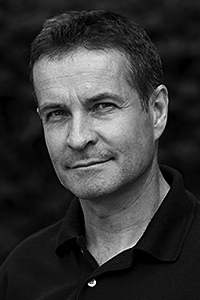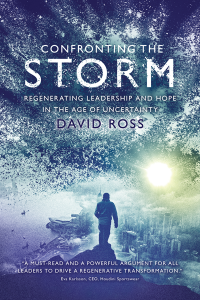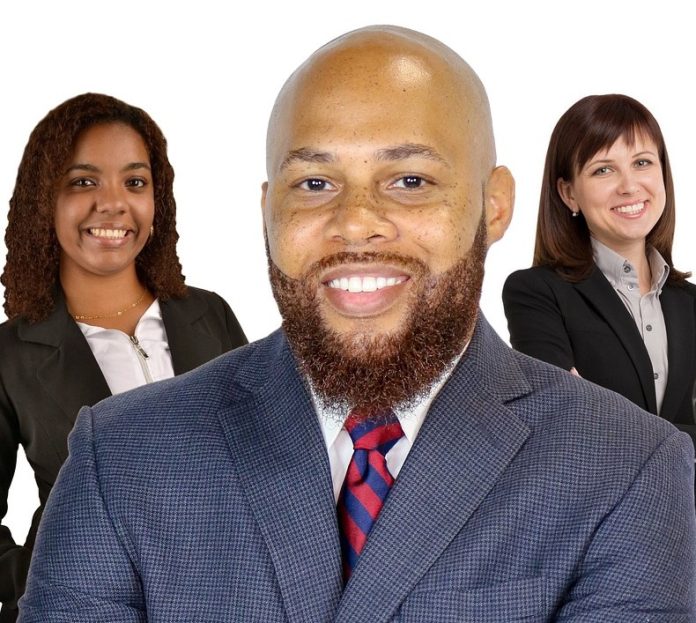By David Ross, below, international strategist and founder of Phoenix Strategic Management
 The world that organisations operate in is no longer simple. To understand the uncertainty and complexity better, and therefore improve decision making and strategies, HR leaders and their teams need to improve the breadth and depth of their thinking. A more collective culture is necessary within HR teams and across organisations to confront the speed of change and the scale of threats – and opportunities – faced. Developing truly collaborative skills is important. To facilitate this and the resulting change, HR leaders and their teams should also continuously improve their emotional intelligence and the development of a coaching mindset.
The world that organisations operate in is no longer simple. To understand the uncertainty and complexity better, and therefore improve decision making and strategies, HR leaders and their teams need to improve the breadth and depth of their thinking. A more collective culture is necessary within HR teams and across organisations to confront the speed of change and the scale of threats – and opportunities – faced. Developing truly collaborative skills is important. To facilitate this and the resulting change, HR leaders and their teams should also continuously improve their emotional intelligence and the development of a coaching mindset.
Thinking, No Longer Sinking
While linear-style problem solving, taking a step-by-step approach, has been successful for teams traditionally, this no longer works. The world is now more uncertain, interconnected, polarised, and indeed, messy than ever before. Incremental may be comforting but it won’t help keep organisations afloat. Subsequently, HR must lead the executive to the realisation that hierarchical cultures may now be their greatest risk.
HR leaders need to adapt and become better at appreciating how their work and organisation is connected beyond markets, customers, competitors, and regulators to the bigger threats and opportunities faced or emerging. Three keyways to obtain those “a-ha” moments are:
- Commence using PESTLE analyses – political, economic, social, technological, legal, and environmental factors. How do each of these factors, individual and collectively, affect the workforce? What emerging issues must be considered by the executive? Is the culture still appropriate?
- Identify which members of the workforce should be trained in systems thinking. To shift beyond linear-style thinking, such training will enable teams to see not only how the parts of the system of the organisation exists within are connected, but also understand how the parts are interrelated. Understanding the complexity faced is important.
- So too is futures thinking or foresight. The ability to anticipate, rather than predict, the different options for the future and reflect on the implications of these is, I believe, the most critical capability for HR leaders to develop. We can no longer rely on the past being a clear guide for how the future will pan out. Anticipating the future(s) enables organisations to be better informed and proactive when those shocks, bumps, and crises do eventuate.
Decentralisation and Dignity
Improved thinking within HR also comes from seeking feedback from diverse perspectives – even those we dislike talking to! Yet, in an uncertain and complex 2024 and beyond, there are other ways that HR leaders can improve performance and sustainability by utilising their team, and other organisational teams, more effectively.
HR leaders and the rest of executive or management teams no longer have the time to understand context on their own, let alone be the sole hub of decision making. Organisations now need a more collective approach to decision making and problem solving. To achieve this, HR leaders and their teams need to build the following capabilities:
- Collaborative skills. Many leaders nod vigorously in response to the benefits that collaboration provides – improved decision making, agility, engaged staff – but baulk when it comes to sharing
- Enhancing emotional intelligence. Collaboration requires high quality relationships, trust, and a dignity mindset, believing that team members have worth as do their ideas. The development of empathy, listening skills, self-reflection and self-awareness shouldn’t be understated.
- A coaching mindset. Seeking to influence your team, your peers, and the organisation that fundamental change may be required isn’t easy! Developing own coaching skills to enable others to make their own seismic contributions in a changing environment makes good business sense, and is also rewarding-
Reinvention Versus Ruin
Debate has continued for some time about the role of HR – transactional or shaping the transformational. I wonder if the direction is now being imposed upon us all … At this sliding door moment, which path will you select?
 David Ross is an international strategist, founder of Phoenix Strategic Management and author of Confronting the Storm: Regenerating Leadership and Hope in the Age of Uncertainty
David Ross is an international strategist, founder of Phoenix Strategic Management and author of Confronting the Storm: Regenerating Leadership and Hope in the Age of Uncertainty

